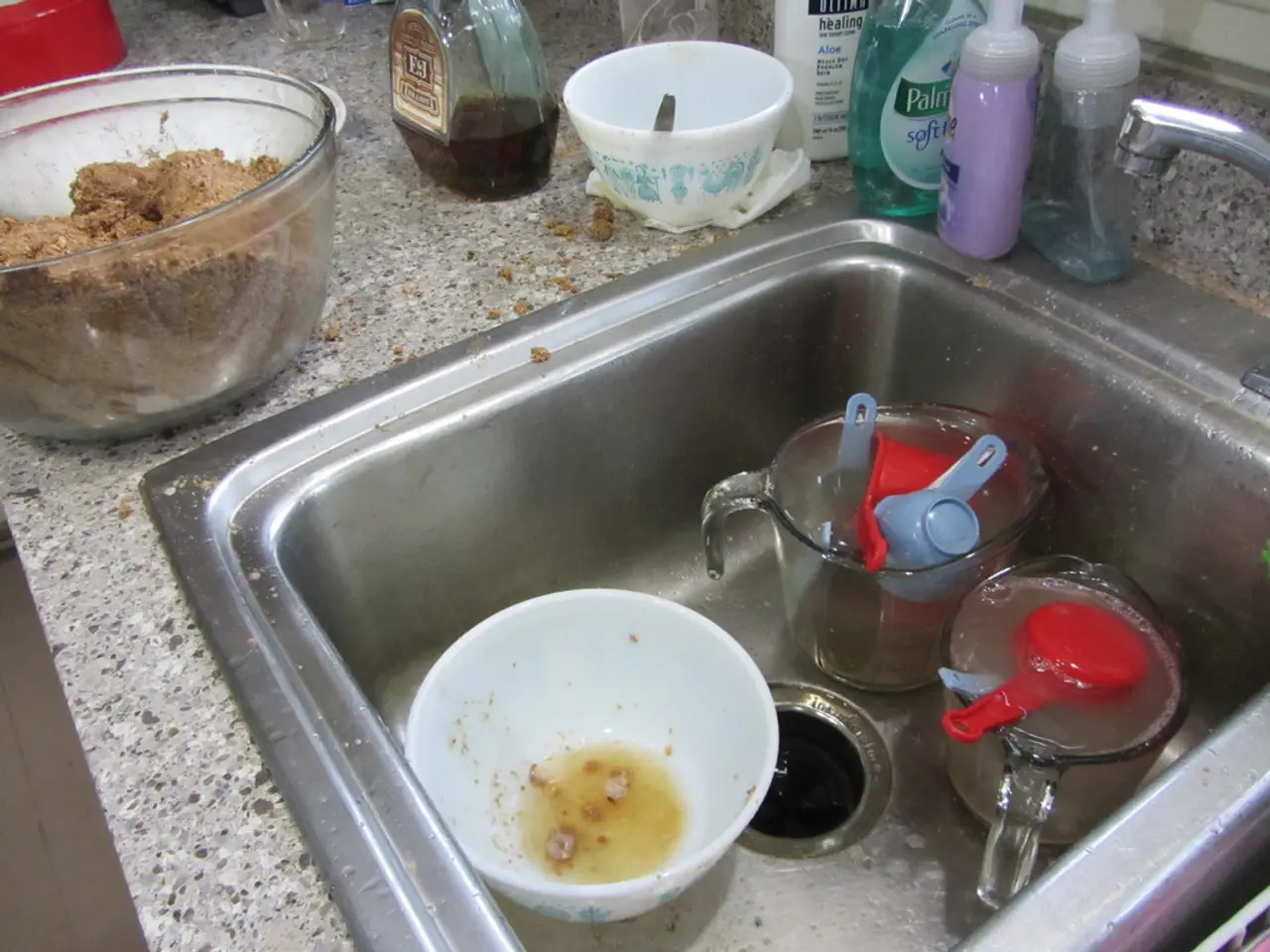Daily Mental Detox: Adopt These 7 Habits for a Fresh Mind Every Day
In the hustle and bustle of modern life, it's easy to neglect our emotional well-being. However, maintaining a healthy emotional state is just as important as physical health. Emotional hygiene, a practice similar to physical health maintenance, is essential for mental and emotional balance.
The key to an effective emotional hygiene routine lies in creating a customised plan that suits your preferences. This routine should be simple, achievable, and integrated into your daily life.
Boundaries play a crucial role in emotional hygiene. Setting boundaries as emotional filters can help keep you safe and steady. This might involve saying "I'll think about it" before committing to something, muting or unfollowing accounts that trigger comparison or stress, and designating tech-free hours.
Neglecting emotional hygiene can lead to increased anxiety, snapping at people for no reason, finding simple decisions overwhelming, and harder-to-manage mood swings. To avoid these pitfalls, incorporating daily practices can help maintain mental and emotional balance.
Some key practices supported by recent sources include emotional check-ins, journaling, mindfulness and meditation, regular exercise, consistent sleep hygiene, limiting social media, gratitude and positive framing, social connection, and scheduled breaks. These practices work synergistically to sustain mental and emotional balance throughout daily life.
Ideas for tiny emotional resets include one-minute breathwork, writing down one word that describes how you feel, or a 30-second stretch with intentional breathing. A clean, nutrient-rich diet can act as a form of daily emotional detox, helping one feel more grounded and resilient.
Emotional hygiene routines reduce stress, lower the risk of emotional burnout, and strengthen the ability to bounce back from setbacks. Tracking emotional patterns with a daily log can help notice patterns and adjust before burnout hits.
A morning emotional reset involves sitting still for a minute after waking, asking oneself about the emotion of the day, and setting an intention. A nighttime emotional detox involves free-writing thoughts, naming things to be grateful for and releasing, and practicing calming breathing exercises or meditation.
A midday check-in involves pausing to tune in, asking about current feelings, and considering what one needs in the moment. Weekly emotional reset involves setting aside 15-30 minutes for honest reflection on emotions and patterns of the week. Weekly release practices help drop emotional weight, resentment, guilt, and disappointment that depletes energy.
Ignoring emotions doesn't make them disappear; they only burrow deeper, shaping decisions, behavior, and inner peace. Emotional hygiene involves creating small, consistent routines that help process feelings, let go of mental clutter, and restore inner balance.
Emotional hygiene isn't about being overly positive; it's about being emotionally responsible. It's about showing up consistently over time, even if you miss a day, just pick back up the next. It's about regulating the nervous system, lowering cortisol levels, and improving response to stress.
The gut-brain connection means that what we eat can directly affect the mind. Processed foods, excess sugar, and lack of fiber can potentially sabotage emotional balance. Quick recipes that support emotional hygiene include swapping processed foods with whole foods, adding "brain foods" like avocado, leafy greens, or seeds to one's daily plate, and eating without distractions to connect with one's body.
Weekly movement ideas include a slow, intuitive yoga flow, a long walk, or free dance to help release trapped energy and restore flow. Emotional hygiene routines should be micro, daily, and doable to create momentum and rewire the brain for emotional self-awareness without feeling like a chore.
In conclusion, embracing emotional hygiene is about taking care of your mental and emotional state with regularity and care. It's about creating a personalised routine that works for you, incorporating practices that promote emotional well-being, and making self-care a daily priority.
- Comparison can lead to stress and emotional turbulence, so it's important to limit exposure to sources that trigger such feelings, such as muting or unfollowing certain accounts.
- A personalized emotional hygiene routine can help maintain mental and emotional balance, consisting of practices like emotional check-ins, journaling, mindfulness, exercise, and sleep hygiene.
- Small, consistent emotional hygiene routines can help process feelings, let go of mental clutter, and restore inner balance, ultimately reducing stress and the risk of emotional burnout.
- Maintaining emotional self-awareness through practices like emotional check-ins, daily reflection, and scheduled breaks can foster personal growth and improve one's ability to regulate their nervous system and respond to stress in a healthier manner.




